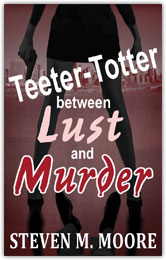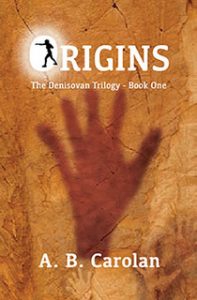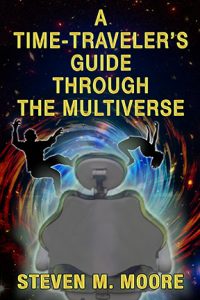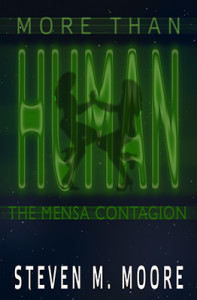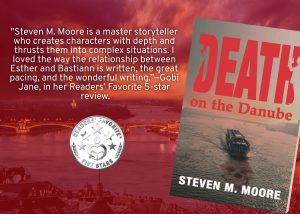Hispanic heritage and fascists’ blame-games…
Friday, November 22nd, 2024[Note from Steve: I’m posting this article to both my blogs because it’s about politics as well as reading and writing. If you object to that, you don’t have to read it!]
Although I’m sure the neo-Nazi and white supremacist MAGA maniacs and their fascist fuehrer, Donald J. Trump, don’t give a rat’s ass about Hispanic heritage (not to mention all those other bigots, haters, and general assholes who supported him in this last election, some even Hispanics!), I want to write first about our US immigrant heritage in general.
Let me say this to a lot of dumb SOBs out there: The only native Americans are Native Americans (and even they came over that land bridge from Asia to America long ago!). We’re all immigrants! There were waves and waves of immigrants to the New World. (I suppose today the FPA—that’s the “Fascist Party of America,” once was the Republican Party until Trump turned it into the FPA—would call all immigrants “evil migrants” today.) Yes, they came to our shores in waves and waves—Europeans in the east, fleeing wars, famines, and religious persecution; Africans in the south, most unwillingly as slaves, to maintain an evil way of life by making it economically feasible; and Asians in the west imported to work essentially as slaves to America’s robber-barons, themselves the sons and daughters of immigrants, to connect east with west. (Yeah, you might think that’s a “woke” statement. Tough!)
All the while, Americans methodically killed, enslaved, and “resettled” tribes of Native Americans, destroying their culture and civilization in the process. Let’s remember, though, that this also occurred elsewhere in the American continents at the hands of European invaders. Many of them were Portuguese or Spanish. Those decades of exploitation couldn’t stop the wonderful blending of Portuguese and Spanish colonists’ cultures, at least their positive parts, with those of America’s indigenous people, leading to what we now call Hispanic culture.
All that great Latin American diaspora has now settled into our country is the latest wave of decades of immigration to the US that is still going on, so for the bigots, haters, and racists of the FPA, they’re the obvious ones to take on the role of scapegoats for all the problems people believe they have, making them targets of their ire.
Hitler and Stalin had the Jews; American Nazis at the end of the nineteenth century and first part of the twentieth had the Irish, Italian, and other more recent immigrants from Europe; fascist leaders in Africa now go after gays, sentencing them to death; Jews in Israel are out to exterminate all Palestinians; Russians call Ukrainians, who are led by a brave Jew, Nazis; etc., etc. But in the US, the FPA has decided to use Hispanics as their scapegoats and has done so ever since 2015 when the Donald came down that escalator at Trump Tower. That was the first sign that things were going horribly wrong in America. “Hispanics are rapists and murderers,” that new presidential candidate said. He’s never stopped saying it!
Unfortunately, even many Hispanics have betrayed their heritage and moved to support that “f$#%ing moron” (that’s a quote from ex-SecState Tillerson, whom Trump fired in his first term) and Trump’s planned pogrom to be launched against their people. Is this cultural suicide and death wishes on their part? It sure looks like it! Gone will be any appreciation for the literary Hispanic heavyweights of Isabel Allende, Luis Borges, Leon de Greiff, Gabriel Garcia Marquez, Pablo Neruda, Vargas Llosa, and so many others. Gone will be the wonderful dance and musical tradition of cumbias, bambucos, rancheros, tangos, vallenatos, and other musical forms of greats like Carlos Gardel, Atahualpa Yupanqui, and so many others. By destroying an entire people, America’s dictator and his crazy followers will destroy a culture just because American fascists need scapegoats to survive like Hitler and Stalin did. Fascist movements everywhere need people to blame. America’s Hispanics were the obvious choice for them, in their minds’ eyes a worthless minority everyone will love to hate.
If the internment and deportation program is successful (that mostly means that fascists will be willing to spend billions of your taxes on paying for it!), the fascist bigots, haters, and racists will get their wishes granted at the expense of killing American democracy. American fascists need a hard lesson of woke and DEI: America will die if it closes its borders to immigrants, and it will be a death by many cuts. Immigrants have always come to America to start new lives in the land of opportunity and have always contributed to building a stronger America. (Do you remember that Neil Diamond song?) The FPA and its fuehrer only want to tear America down. They even call themselves “disrupters”! Which future for America do you prefer? One controlled by the bigots, haters, and racists?
Like many others who have studied in detail at America’s current political disaster and its origins, something now so awful that the country looks like 1930s’ Germany, I’ve often thought of going elsewhere. During the Vietnam war era, I considered Canada. After all, I can live abroad and did so for more than a decade in Colombia, South America. Europe looks more sane too. But despite my age now that makes such a decision more difficult (although I’d like to leave the sinking ship because I know that, except for supporting their aging fuehrer, the FPA doesn’t care about the elderly—will Dr. Oz to offer euthanasia as a Medicare option?), all I can do is fight against fascism and for democracy in America with my writing during the years I have left; that includes my two blogs. That’s a promise I’ve made to myself. Won’t you join me?
